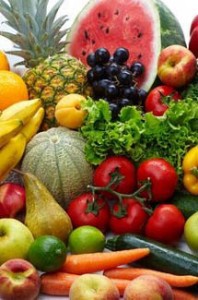
A healthy diet is not only about following strict nutritional recommendations or depriving yourself from the food you love. It’s more about eating right, feeling great about yourself and staying fit and healthy. You can achieve this by following some nutritional basics and incorporating them in your daily diet as well. However, before kick starting a healthy diet to lose weight plan, make this clear – don’t expect an overnight miracle. Though a healthy diet for a healthy weight loss goal can be set in weeks, it will be more rewarding, if you can sustain the changes in the long term.
Healthy Diet Plan to Lose Weight
The best healthy diet plan to lose weight should ensure that your body derives the optimum amount of carbohydrates, proteins, fats, minerals and vitamins. The healthy diet plan to lose weight fast should also include fruits and vegetables, rich in fibers and antioxidants. For losing weight effectively, it’s important to focus on a diet plan that suits your lifestyle and the one you can sustain for a long period of time.
Healthy Diet to Lose Weight
A healthy diet to lose weight should ensure our overall well being, as well as help maintain a healthy Body Mass Index (BMI). Following a healthy diet also lowers the risk of debilitating diseases like cancer, diabetes, cardiovascular ailments and osteoporosis. A healthy diet for losing weight should include a variety of healthy foods that provides the necessary nutrition to our body. Include the following food groups as part of your healthy diet to lose weight.

Our bodies are composed of three-quarters water. Dehydration means your body does not have enough water for it to function correctly. You lose water when you sweat, breathe, urinate, defecate, blow your nose, have diarrhea, or throw up. To make up for the water you lose, you must hydrate your body by eating and drinking.
Who Gets Dehydrated?
Chances are you are dehydrated right now and you do not even know it! Everyone gets dehydrated, even babies and teenagers. Babies get dehydrated in part because their thirst mechanism is not fully developed. Even in the teen years, symptoms of adequate hydration may already be present and hydration can be a problem. Athletes and anyone engaging in a regular exercise routine are also prone to becoming dehydrated.
What are the Symptoms of Dehydration?
Signs of dehydrahttps://costaricawellness.com/wp-content/uploads/2017/07/crw-09-199×300.jpgtion are many. Energy loss is usually the first sign of dehydration because the cells of the body lose water first. Water is a primary driving force of energy production inside the
cells, so even a little water loss causes a big drop in energy. Some say that for every one percent drop of water inside your cells energy production is cut by 10%.
Other symptoms of dehydration include:
fatigue,
moodiness,
a drained feeling,
noticeable thirst,
headaches,
feeling lightheaded or dizzy,
rapid heartbeat,
dry lips and mouth,
wrinkles and sagging skin,
infrequent urination,
a dark colored or strong smelling urine,
digestive problems,
constipation,
allergies
Dehydration is the Source of Serious Health Problems

Is proper nutrition responsible for a healthy brain?
Our brain makes up two percent of our total body weight, yet consumes over thirty percent of our nutrients and calories.
Activity is controlled by the brain- no matter what it is…the taste of food, any movement or exercise, making or storing memories.
The brain is the computer that runs your body. It needs power to communicate and it NEVER shuts off, even when you’re asleep. It controls all emotion, appetite, breathing, sleep and heart rate.
Just as we human beings can communicate with each other using different languages, the brain has it’s own internal communication system. This system is made up of neurotransmitters and amino acids, peptides and neurons.
CAUTION: Any excitatory amino acid (or precursor), such as Aspartic acid, should never be used on an empty stomach as they can also function as an excitotoxin and destroy neurons. Our brain demands sufficient amounts of neurotransmitters in order to function properly.
Although getting the raw material to the brain should solve the problem, it can be absorbed if the enzymes, glucose or gastrointestinal system are not all functioning properly. Thus the brain cannot get the nutrition it needs in order function properly.
What does the brain need?
1. Fats: EFA’s or essential fatty acids. These types of fats actually regulate a release of neurotransmitters for proper brain health. Transfats should be avoided at all costs.
2. Proteins: They are broken down into amino acids. These amino acids are used in manufacturing neurotransmitters. One of those amino acids is Tryptohpan 5HTP, used to balance the release of serotonin and melatonin, chemicals released for calming or regulated sleep.
3. Vitamins and Minerals: Catalysts that prevent oxidation from taking place in the brain cells, in other words, the front line of defense.
4. Carbohydrates: Blood sugar metabolism must be in balance during the day. If you have constant headaches or lack the ability to focus, you may have low blood sugar. Snacking on complex carbs helps maintain a normal balance. Leave off the refined sugar or simple carbs.


